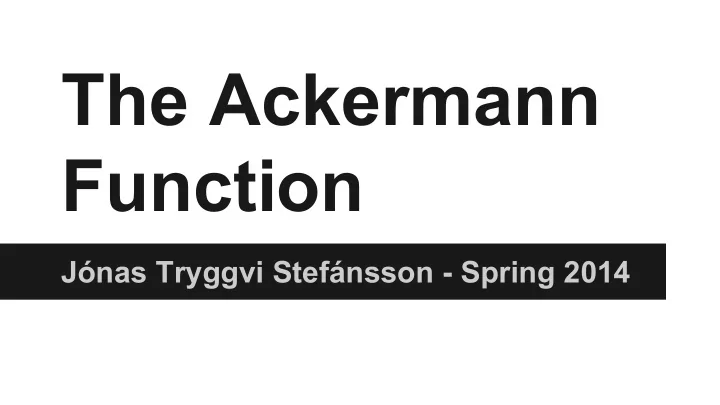

The Ackermann Function Jónas Tryggvi Stefánsson - Spring 2014
What is it? - One of the simplest and earliest-discovered examples of a total function that is not pri. recursive. - In the early 1900s it was believed that every computable function was also pri. recursive.
Big Numbers - Googol: 10 ^ 100 - GoogolPlex: 10 ^ 10 ^ 100 - The Ackermann function grows so that it’s output becomes larger than a GoogolPlex rather quickly. - Graham number
The function itself - The original Ackermann function had three non-negative arguments. - Provided by Wilhelm Ackermann. - The most common version is generally known as the two-argument Ackermann-Péter function.
The function itself - Defined as follows for non-negative integers m and n, and is recursively defined:
Evaluation
Implementation
About the function - The evaluation of A(m, n) always terminates. - It‘s recursion is bounded because in each recursive application either m decreases, or m remains the same and n decreases. Each time that n reaches zero, m decreases, so m eventually will reach zero as-well. - However, when m decreases there is no upper bound on how much n can increase – and it will often increase greatly. - There is no alternative presentation of the Ackermann function that uses only primitive recursion so it cannot be primitive recursive .
Table of values
Identical function calls
Heimildir http://en.wikipedia.org/wiki/Ackermann_function https://www.youtube.com/watch? v=CUbDmWIFYzo
Recommend
More recommend